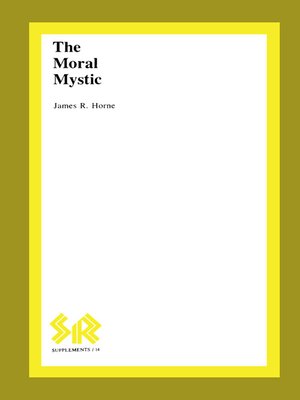
Sign up to save your library
With an OverDrive account, you can save your favorite libraries for at-a-glance information about availability. Find out more about OverDrive accounts.
Find this title in Libby, the library reading app by OverDrive.



Search for a digital library with this title
Title found at these libraries:
| Library Name | Distance |
|---|---|
| Loading... |
Mysticism is condemned as often as it is praised. Much of the condemnation comes from mysticism's apparent disregard of morality and ethics. For mystics, the experience of "union" transcends all moral concern. In this careful examination of the works of such practitioners or examiners of mysticism as Paul Tillich, Thomas Merton, Evelyn Underhill, and Martin Buber, the author posits a spectrum of uneasy relationships between mysticism and morality. Horne explores the polarities of apophatic (imageless) and imaginative mysticism, the contemplative and the active life, and morality and amorality. He stresses the importance of the distinction between "proper-name" (entirely personal) morality and "social" morality, for the history of Christian mysticism is a mix of minimal moral concern, proper-name morality, and social morality.
The volume will be of interest to students of religious experience, ethics, and the recent history of mysticism. Carefully reasoned and documented, the argument is couched in clear prose, easily accessible to lay readers as well as to scholars.







